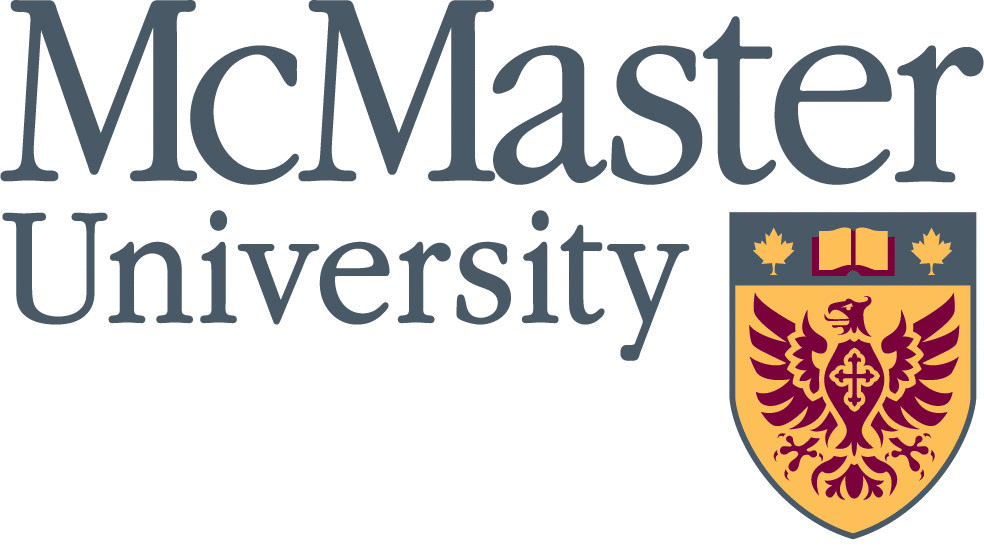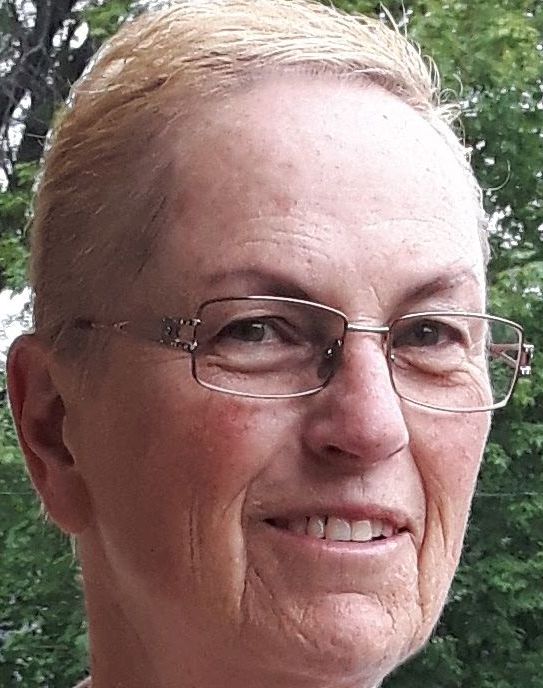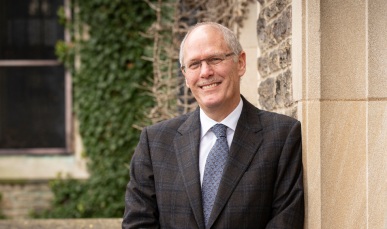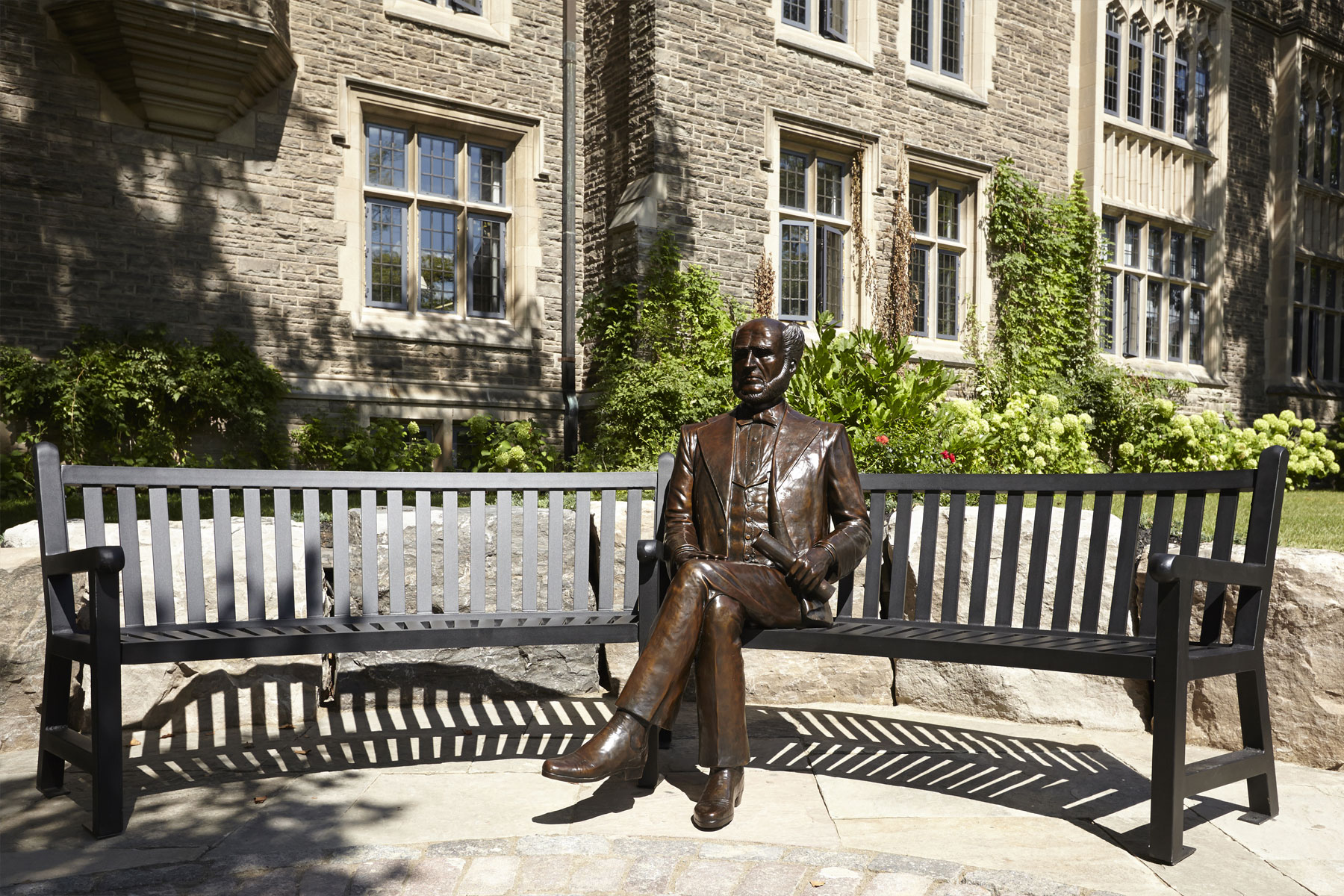- Home
- MURAnews
- Previous issues
- Spring 2017 - present
- Winter 2020
MURAnews Winter 2020
MURANews Winter 2020 issue in PDF format
In this issue:
President's Corner
By the time you are reading this issue of MURAnews I hope all MURA retirees and spousal survivors of retirees have participated in the MURA Member Survey. It’s online at https://www.surveymonkey.com/r/muramembers. A paper copy was mailed to you if MURA does not have your email address. If you have not received the survey, or have questions, please contact MURA at mura@mcmaster.ca or leave a message on the MURA voicemail (905) 525-9140, ext. 23171. The goal of the survey is to collect information to improve MURA’s programs and services. It will also be valuable in demonstrating the vital functions that McMaster retirees or their spousal survivors fill at McMaster and in the wider community. The survey focuses on post-retirement activities during the last three years. The survey will close on February 29, 2020, but please respond as soon as possible. It’s important that MURA know what its members do, and what you would like it to do for you. Answers will be kept confidential and identities will not be associated with answers in any reports or compilation of the data. Respondents may choose to provide their name to be entered into a draw for their choice of a $25 gift certificate to Chapters, Indigo, or the McMaster bookstore. MURA Council will be using the knowledge we gain from the survey to determine how MURA can remain meaningful, helpful and relevant to all retirees. Survey results will be published in an upcoming issue of MURAnews, and presented at the Annual General Meeting in May. Thanks to Nora Gaskin, John Horsman, Hank Jacek and Heather Grigg for their work on preparing the survey. Annual pension increases are much on retirees’ minds at this time of year. You’ll find an article below about the January 2020 increases prepared by MURA’s representatives to the pension committees. There also is an article on how well our pensions have kept pace with inflation in the past 10 years. Any retiree who has questions about their pension increase calculations should contact Human Resources. Call (905) 525-9140, ext. 222-HR (47), or email hr.mcmaster@mcmaster.ca. HR has recently implemented a new service that tracks questions received and response times which will, hopefully, help retirees receive timely service. Of special note: regarding Pension Overpayments/Repayments Human Resources says a small group of retirees (about 14) received a letter right before the University Christmas closure telling them they had been receiving pension overpayments for the past three years. In the case of one retiree who contacted MURA for help, the sums were considerable. The retiree found the tone of the letter “almost confrontational”. She also said the letter did not adequately explain the source of the error or the numbers presented. Finally, the timeline and the only options given for decision and repayment were unreasonable to her, in that they presented an undue hardship. Human Resources has advised MURA that all retirees who received one of these pension overpayment/repayment notifications have been contacted in writing by the HR pension team. In addition, HR says the retirees will also receive a follow-up phone call to explain the details and discuss the retirees’ preferences for repayment. If you are among the 14 retirees who received a pension overpayment/repayment demand letter in December and have not discussed it with a representative of Human Resources, please contact Tim Doucette, Lead Pension Advisor, at (905) 525-9140, ext. 21239 or doucett@mcmaster.ca. Helen Barton
Call for NominationsThe MURA Nominating Committee is now receiving input for the nomination of Council members for the three-year term starting in June 2020, as well as for President and Vice-President for 2020/21. We invite you to review the roles of members on MURA Council and the various committees where you could participate. The MURA website provides detailed information on the various Council activities as well as a list of committees, liaisons and special projects carried out on behalf of all retirees. Please forward expressions of personal interest and/or suggestions for nominees to the Committee Chair, Heather Grigg to grigghm@mcmaster.ca or 905-335-6742 no later than February 15, 2020.MURA Christmas Lunch 2019
MURA appreciates the lunch subsidy provided by the University President’s office. We had 20 fabulous door prizes to present, thanks to generous donations from: The Campus Store; The Casual Gourmet – Westdale; Chris Roberts – Hospitality Services; Colleen Rolland Pet Bereavement Services; Conrad Smyte – The Phoenix; David Hulley – Vineland Estates; Nannaa Restaurant – Westdale; Pete & Kay Diner – Westdale; Roger Bojanowski - Waste Connections of Canada; Rob Stevens; ...and retirees Henry Jacek, Kathy Overholt, and Marianne Van der Wel.
Thank you to all! Honours Awarded to Four MURA Members
What’s happening at MacMcMaster Installs its 19th Chancellor
Photo courtesy of McMaster University campuses including University of New Mexico, University of Toronto, York University, George Washington University, Waseda University in Japan, Mexico’s University of Puebla, Sheridan College and many others. Ms Smith’s artistic life includes the visual arts, designing pottery at her family owned business – Talking Earth Pottery – located on Six Nations. Her pieces are in the collections of the Woodland Cultural Centre, Gardiner Museum, Royal Ontario Museum, Museum of Civilization, National Gallery of Canada and in private collections around the world. For her installation, the Chancellor’s robes were modified to reflect both the traditions of the office of Chancellor and Ms Smith’s own Mohawk and Scottish heritage. Trimmed with gold braid taken from the previous robe, the Chancellor’s regalia now incorporates a yoke, cuffs and Glengarry hat with traditional beading created by designer Elaine Redding and seamstress Naomi Smith. As she was dressed in the robes for the first time, Chancellor Smith, who is from the Kahnyen’kehàka (Mohawk) Nation, Turtle Clan from Six Nations of the Grand River, was accompanied by a trio of singers that included her daughter, a current McMaster student. Retirees attending MURA’s annual Christmas lunch on December 4th had an introduction to Chancellor Smith, who brought greetings from the University in her address to those gathered to celebrate the season. McMaster’s New President
Photo courtesy of McMaster University Dr. Farrar came to McMaster from the University of British Columbia where he served as Provost from 2007 to 2015 as well as Interim President in 2016. In addition to his experience at UBC, President-elect Farrar also spent many years at the University of Toronto where he was Vice-Provost (students), Deputy-Provost, and Chair of the Chemistry Department. Farrar's undergraduate and Master’s degrees are from the University of Toronto and he earned his PhD at the University of Western Ontario. He was a postdoctoral fellow at the University of Cambridge and then a faculty member in the Department of Chemistry at the University of Toronto for 26 years. He has authored or co-authored over 80 technical papers, holds five patents, and has supervised more than 25 graduate students and postdoctoral fellows. Dr. Farrar will commence his five-year term as the 8th President of McMaster University on July 1, 2020. MURA looks forward to working with Dr. Farrar, with the aim of continuing the long-standing tradition of a mutually beneficial relationship between retirees and the University.
Don’t want to volunteer alone? Sign up with a friend.Bay Area Science & Engineering Fair March 26 - 31, 2020BASEF is an annual exhibition and competition showcasing projects of science, technology, engineering and mathematics. Students in grades 7 to 12 from Hamilton, Halton, Brant, Haldimand, Norfolk and Six Nations display their innovations and discoveries throughout the fair. Mac retirees from all backgrounds are encouraged to help make this event a success by volunteering at the fair in various capacities. General Volunteers — Help with set-up, registration, supervising student activities, and welcoming and guiding participants and visitors. To sign up, please visit BASEF Volunteering or email volunteers@basef.ca Judging — Judging day is Friday March 27. To become a judge, please visit BASEF Judging or email judging@basef.ca.Exam Hospitality 2020 @ McMasterVolunteers are being welcomed to help out for exam drop-in this April. We are looking for individuals who would like to spend time with students dropping in for a coffee break from studying. The shifts are from 5:30- 7:00 pm or 7:00-8:30 pm. Drop-ins are hosted Monday, April 13 to Tuesday, April 28 (excluding Saturdays). We also welcome cookie donations (store bought or homemade — peanut free). If interested, please contact Kristine Sabido at chaplain@mcmaster.ca or call 905-525-9140 x24207. MURA Members Volunteer at Ronald McDonald House
By John Horsman Many retirees looking for post retirement “work” often turn to volunteering opportunities to channel their energy and enthusiasm. They look for ways to give back, to contribute, to make a difference in their lives and their community. Two such McMaster retirees have found rewarding and positive experiences at Ronald McDonald House (RMH) in Hamilton. I recently asked each about their time as a volunteer including how they heard of, got in touch with, and their feelings about volunteering at RMH. Carolyn responded to an advertisement in the local newspaper and after interviewing with the Volunteer Manager for RMH, she started in the Family Room at MUMC. Debbie contacted the Volunteer Manager after checking out the RMH website. While Carolyn has stepped back from active participation for the time being, Debbie still spends about 3 hours a week, usually at the reception desk welcoming visitors and families, accepting deliveries for an hour or so and then helping with whatever, wherever as needed. This includes helping in the kitchen, tidying the playroom, clearing and cleaning eating areas and preparing for special events. Carolyn’s duties in the Family Room included welcoming visitors, making sure the coffee was fresh and hot, preparing light meals including breakfast sandwiches and pancakes. It is the volunteer’s job to ensure a clean, friendly and welcoming place so that families and young patients can feel at home while away from home. Both say the experience is “EXTREMELY” rewarding and humbling. No matter how each was feeling personally, after a shift at RMH they felt happy and uplifted. Both say they felt so appreciated just by being a good listener or interacting with the children. Often families would search them out to say goodbye, thank-you and have them meet the young patient who was being released from hospital. Debbie was humbled just knowing that a simple smile could be quite something both for her and the families. Carolyn “loved it” and is sure anyone would find it rewarding. Debbie cautions that volunteering is a very personal thing and that it is important for those considering volunteering, not only at RMH but anywhere, to do their research and find a good “fit”. When you do, you will find that the people you help and your fellow volunteers “will always make you feel valued”. If you are interested in volunteering, please contact Shelley Harrison, Manager of Volunteer Services, at sharrison@rmhcsco.ca or 905-521-9983 ext.2110 for more details about how you can become involved. Information about the Ronald McDonald Family Room can be found at www.rmhcsco.ca.
By Brian Beckberger and Mary Law
The Fall issue of MURAnews included an article on Retiree Health Benefits for Eyeglasses, Contact Lenses, and Laser Eye Surgery. It has been brought to our attention that there are a couple of Benefit Plans that allow for more than one claim against the Vision Care provisions. If your plan does NOT contain the clause “We will cover 100% of these costs up to a maximum of $xxx per person for one purchase every 24 months”, you can make multiple claims against Vision Care over a two-year period. Also, if your plan contains the clause “lenses required as a result of cataract surgery, up to a maximum of $xxx per eye”, some clarification is in order. The ‘lenses’ being referred to are intraocular lenses. These are the lenses that are implanted in your eye during the cataract surgery. A claim made under this provision is in ADDITION to the limit of one claim every 24 months. For more information about your benefits and Sun Life coverage, check your benefits plan booklet, or contact Human Resources at 905-525-9140, ext. 22247 or hr.mcmaster@mcmaster.ca.Exercise, Memory and the Older AdultBy John Horsman I recently participated in a study investigating the relationship between fitness and memory in older adults. This is not the first study for which I have volunteered as a human guinea pig for studies run by researchers and graduate students at McMaster University. I have been poked for muscle biopsies more times than I can remember, eaten pre-planned prepared meals for a month, had restricted activity schedules, had strenuous activity schedules, been scanned, had blood drawn, had my body fat measured (don’t ask), had memory tests, hearing tests, done one-mile walks, done 10-metre walks, lifted weights, squeezed hand-grips, pedalled a stationary bike while breathing through a tube, all in the name of science. All of the studies were overseen by a senior researcher/professor in the Kinesiology Department and administered by PhD or Master’s level students. The opportunities are almost endless if you are into that type of activity. The Coffee News, which you can find in most area restaurants, often advertises Mac studies looking for volunteers. A recent study spearheaded by Professor Jennifer Heisz looked at high-intensity exercise and its effects on memory in seniors. Some of you may remember Professor Heisz from the 2018 MURA AGM where she gave an interesting and informative talk on the ben Dr. Heisz stresses the importance of tailoring exercise to one’s fitness level. For some, high-intensity may be pedalling that stationary bike as fast as you are able or running on that treadmill while it is at a relatively steep slope whereas, for others, high-intensity can be simply increasing your normal walking speed or tackling that hill you always want to avoid. Whatever your level, it will involve exertion – you have to get your heart rate up. A simple rule of thumb is the more difficult it is to talk while exercising the more your heart is working. If you want more detailed information on this study it was published in late October 2019 in the journal Applied Physiology, Nutrition and Metabolism.What is the McMaster Optimal Aging Portal?By John Horsman The mission of the McMaster Institute for Research on Aging (MIRA) is, in part, to transform the experience of aging by transforming the science of aging. Part of this transforming is through the McMaster Optimal Aging Portal. To quote their website from 2015, “The Portal offers direct and easy access to evidence-based information about how to stay healthy, active and engaged, and how to manage our health conditions, as we grow older. The Portal aims to be a trusted voice on optimal aging for citizens, clinicians, public health professionals and policymakers.” Support is provided by the Labarge Optimal Aging Initiative and AGE-WELL is a contributing partner. AGE-WELL is a Canadian organization that coordinates leading Canadian companies, governments, care providers and academic partners in developing “cohesive critical mass in the technology and aging sector”. As part of that “easy access” MIRA manages the McMaster Optimal Aging Portal, an online source of health-related information designed to be “your source for healthy aging information that you can trust”. Through their website you can search for information, including published scientific articles, related to health for the aging population. While there are many internet sites bombarding users with all manner of information on health and aging, what puts the Optimal Aging Portal above the others is its emphasis on providing only “best evidence” and explaining why it is the best. The Portal provides easy to understand scientific evidence on a wide range of age related topics. The website allows you to enter keywords to search a topic specific to your needs or to browse through a list of topics: You can also sign up to receive the weekly “McMaster Optimal Aging Portal” emails. Each week the Portal sends out an email with a broad theme providing “credible insights on hot topics and prevalent conditions related to seniors’ health”. From these email alerts you can click on the topic of note and be directed to the Portal’s blogs that feature posts recapping the latest articles providing the best scientific evidence backed by rigorous methodology. At the time of writing this article, the theme of the post was “Setting new goals and intentions for 2020”. A quick browse of the blogs showed the latest evidence in areas such as diet, exercise, smoking, and the arts. Picking “diet” provided an overview, what the research says, and a bottom line or verdict on the various diets for short-term and long-term weight loss as well as concerns about the safety of popular diets. In this age of “fake news”, techno-babble, and purveyors of all manner of self-help advice, it is critical to have a source of information that can be easily accessed, read, understood and trusted. The McMaster Optimal Aging Portal is one such reliable source. Vacation Calling?What to know about health insurance before you go
By Helen Ayre As winter sets in and thoughts turn to sunnier destinations, it’s a good time to review travel insurance needs. Most McMaster retirees and their eligible dependents who live in Canada have an out of province/country emergency medical coverage retiree benefit which will pay up to a lifetime maximum of $10,000, but this is not considered adequate. MURA and McMaster Human Resources (HR) strongly encourage retirees to purchase additional travel insurance every time they travel out of province or outside Canada. This advice is all the more relevant now that OHIP’s Out-of-Country Travellers Program has been eliminated as of December 31, 2019. (The Ontario government is making an exception for patients in need of dialysis treatment. A new program, operated by the Ontario Renal Network with government funding, will provide these patients with the same level of coverage that existed under the cancelled travellers program.) Ontarians with OHIP coverage will still be covered for physician and hospital care when visiting other parts of Canada, however, some procedures in other provinces may not be fully covered by OHIP, and the cost of evacuating you back to Ontario can be very expensive. Retirees can use the McMaster benefit to cover the deductible on any private insurance plan that offers that option. The higher the deductible, the less expensive the premium will be. Before opting to use the McMaster benefit as the deductible, however, All retirees should review the particular provisions set out in their benefit booklet as there are some slight differences among the various plans regarding coverage and claims processes. It is important to understand your coverage and how this dovetails with any private insurance you purchase. The federal government warns on its website that hospitals and clinics in some countries will not provide treatment without proof of sufficient insurance or money to pay. It also warns travelers that ‘the Government of Canada will not pay your medical bills’. MURA does not endorse any particular providers. This is a personal choice and will depend on your particular circumstances and travel plans. Sun Life has partnered with Allianz Global Assistance. It is stated on the HR website that they provide “preferred rates” to McMaster retirees. No details are provided, but further information can be found on the HR Retiree Information web page, or by phone at 905-525-9140, ext 22247. There are other options available to MURA members through our national retirees association (College and University Retiree Associations of Canada /Associations de retraités des universités et collèges du Canada); go to the CURAC web site to find out more. The travel insurance industry provides the following advice for consumers:
Shop around for the policy that provides the best coverage for your individual needs at the best price and always ensure that you explain completely any pre-existing conditions. When completing the medical questionnaire, answer all questions accurately and honestly, and consult your doctor if you are at all unsure as to how to answer a question. In some cases, a recent change in medication before the trip may affect coverage for one type of pre-existing condition but not necessarily a different pre-existing condition that has been stable. Be aware, also, that there may be additional coverage available through your credit card.
January 2020 Pension Plan IncreasesBy Cliff Andrews, MURA Representative, Hourly Pension Plan Committee & Brian Beckberger, MURA Representative, Pension Trust Committee Most, but not all, McMaster retirees are members of one of two pension plans: the Hourly Pension Plan and the Salaried Pension Plan. Furthermore, there is a group of retirees in the Salaried Plan who are governed by a somewhat different set of rules, which apply only to Unifor 5555 members who were hired on or after May 1, 2010. On December 13, 2019, MURA notified its members (those who have provided MURA with an email address) of increases in pensions starting January 2020 as follows: In each case, the full increase is applied to those who were receiving a pension from either of the plans on June 30, 2018. Those who retired between July 1, 2018 and June 30, 2019 receive a pro-rated increase based on their respective pension plan. Those who retired after June 30, 2019 receive no increase. How these increases are calculated Annual pension increases, if any, are based on the five-year average rate of return on the pension funds as of the previous June 30th. The five-year average rate of return as of June 30, 2019 was 7.06% [(5.84 + 8.29 + 11.16 + 1.71 + 8.31)/5] for the Salaried Pension Plan and 6.33% [(6.29 + 5.48 + 8.87 + 2.45 + 8.56)/5] for the Hourly Pension Plan. Increases are paid if this average exceeds 4.50% for most members of the Salaried Plan, 5.00% for Unifor members hired on or after May 1, 2010 in the Salaried Plan, and 6.00% for members in the Hourly Plan. This figure is then compared against the percentage increase in the Consumer Price Index (CPI) for the previous year, and the lesser of these is the percentage pension increase. The average monthly increase in the Consumer Price Index for the year ending June 30, 2019 was 2.12%.
McMaster Pension Plans
|
|
For Period Ending |
5 Year Annual Average Return |
Pensioner Increase Date |
Pensioner Increase % |
Average CPI |
|
June 30, 2010 |
2.24% |
January 1, 2011 |
0.00% |
0.73% |
|
June 30, 2011 |
4.04% |
January 1, 2012 |
0.00% |
2.49% |
|
June 30, 2012 |
1.92% |
January 1, 2013 |
0.00% |
2.40% |
|
June 30, 2013 |
4.87% |
January 1, 2014 |
0.37% |
0.96% |
|
June 30, 2014 |
10.89% |
January 1, 2015 * |
6.39% |
1.41% |
|
June 30, 2015 |
11.26% |
January 1, 2016 |
1.49% |
1.49% |
|
June 30, 2016 |
8.61% |
January 1, 2017 |
1.40% |
1.40% |
|
June 30, 2017 |
10.17% |
January 1, 2018 |
1.46% |
1.46% |
|
June 30, 2018 |
9.57% |
January 1, 2019 |
1.89% |
1.89% |
|
June 30, 2019 |
7.06% |
January 1, 2020 |
2.12%** |
2.12% |
|
16.02% |
17.60% |
* The Increase payable on January 1, 2015 represents a combination of the Annual Pension Increase (1.41%) and the Supplementary Pension Increase (4.911%). The supplementary Increase was payable to retirees in receipt of a pension on or prior to July 1, 2010, and was pro-rated for retirees who started receiving a monthly pension benefit during the period July 1, 2010 to July 1, 2013. Those who started their pension on or after July 1, 2013 did not receive an increase from the Supplementary Pension Increase.
**It should be noted that for Unifor members of the Salaried pension plan hired after April 30, 2010, this is the first year the Pension Increase resulted in a different increase than the others in the Plan due to the difference in formulas. The January 1, 2020 increase for this group is 2.06% compared to the Average CPI of 2.12%.
McMaster Hourly Pension Plan – 10 Year Summary of Results
|
For Period Ending |
5 Year Annual Average Return |
Pensioner Increase Date |
Pensioner Increase % |
Average CPI |
|
June 30, 2010 |
2.24% |
January 1, 2011 |
0.00% |
0.73% |
|
June 30, 2011 |
4.04% |
January 1, 2012 |
0.00% |
2.49% |
|
June 30, 2012 |
1.92% |
January 1, 2013 |
0.00% |
2.40% |
|
June 30, 2013 |
4.87% |
January 1, 2014 |
0.37% |
0.96% |
|
June 30, 2014 |
10.89% |
January 1, 2015 * |
3.79% |
1.41% |
|
June 30, 2015 |
11.26% |
January 1, 2016 ** |
4.47% |
1.49% |
|
June 30, 2016 |
8.61% |
January 1, 2017 |
1.40% |
1.40% |
|
June 30, 2017 |
9.91% |
January 1, 2018 |
1.46% |
1.46% |
|
June 30, 2018 |
8.43% |
January 1, 2019 |
1.89% |
1.89% |
|
June 30, 2019 |
6.33% |
January 1, 2020 |
0.33% |
2.12% |
|
14.04% |
17.60% |
* The Increase payable on January 1, 2015 represents a combination of the Annual Pension Increase (1.41%) and the Supplementary Pension Increase (2.347%). The supplementary Increase was payable to retirees in receipt of a pension on or prior to July 1 2010, and was pro-rated for retirees who started receiving a monthly pension benefit during the period July 1, 2010 to July 1, 2013. Those who started their pension on or after July 1, 2013 did not receive an increase from the Supplementary Pension Increase.
** The Increase payable on January 1, 2016 represents a combination of the Annual Pension Increase (1.49%) and the Supplementary Pension Increase (2.936%). The supplementary Increase was payable to retirees in receipt of a pension on or prior to July 1, 2011, and was pro-rated for retirees who started receiving a monthly pension benefit during the period July 1, 2011 to July 1, 2014. Those who started their pension on or after July 1, 2014 did not receive an increase from the Supplementary Pension Increase.
The above information is intended to summarize the 5 Year Annual Average Return and Pensioner Increase Percentage History. As it is a summary only, this document is not intended to have legal effect. In the event of any discrepancy or inconsistency, the original documents (audited financial statements) will govern.Are Our Pensions Keeping up with Inflation?
For a majority of us drawing on our pension, the answer is NO. For those in the Salaried Plan (and not hired on or after May 1, 2010 in the Unifor group) who retired in the past 6 or 7 years, the pension has kept pace. For the last 10 years, the Salaried Pension Plan has performed fairly well. The ‘buying power’ has decreased by approximately 1.6%. The Hourly Pension Plan has not performed as well. The ‘buying power’ for the past 10 years has decreased approximately 3.6%.
Les Robb’s comments in his article in MURAnews Fall 2008 are as valid today as 12 years ago. I will quote them here:
“There are many variations between the two plans which make it difficult to fully explain the reason for different results. One factor is the difference in the formulae between the two Plans. Both Plans use a 5-year average rate of return to determine whether an increase will be paid each year, but the Hourly Plan requires that the average return, after expenses, must be at least 6.0% before any excess earning are available to be used toward an increase, while the Salaried Plan has a 4.5%[*] threshold.
The relatively small size of Hourly Plan compared to the Salaried Plan is another factor. It makes the expenses of the Hourly Plan proportionally much higher. The small size also prevents the Hourly Plan from using as wide a range of investments styles and asset types.
Finally, the Hourly Plan has a relatively lower rate of return on investments, for a variety of reasons, which can be seen by comparing the “5 Year Annual Average Return” columns in the two charts. The investment decisions of the Plans are monitored by different committees although both investment strategies must be approved by the Finance Committee of the Board of Governors.”
[*] The threshold is 5.0% for members of Unifor hired on or after May 1, 2010 participating in the Salaried Plan. [I am sure Les did not anticipate this eventuality.]
It should be noted that the Hourly Plan is considered “Closed” by the Financial Services Regulatory Authority of Ontario; it has had this status for many years. The ‘Closed’ status legally limits the amount of risk associated with investments. Usually, the lower the risk of an investment, the lower the return on that investment. Obviously, this lowers the return on investments. By the same token, this reduces the losses as well which is the intent of the legislation.
Other News
Welcome new members
Robert Edge, Facility Services
Susan Fast, English
John McKay, Advancement Services
Malcolm Sears, Medicine
Kevin Sulewski, Faculty of Health Sciences
Michael Wilson, Research & High Performance Computing
Pauline Yoo, Library Acquisitions
Recent passings
Sofia Antoszek, Library, Oct. 9/19
Rajat Bhaduri, Physics & Astronomy, Nov. 16/19
Jean Dushenko, Education Services, Oct. 25/19
Marjorie (Marnie) Fairlie, CIS (UTS), Oct. 25/19
Maureen Halsall, English, Nov. 17/19
Kenneth Kershaw, Biology, Dec. 30/19
Anna Lunyk, Facility Services, Oct. 24/19
Margaret McAlpine, Psychiatry, Sept. 16/19
Elaine Moore, Engineering Physics, Dec. 7/19
Ronald Moroz, Facility Services, Nov. 12/19
Karen Myles, DeGroote School of Business, Nov. 1/19
Elizabeth Penney, Biology, Oct. 15/19
Brian Snell, Audio Visual Services, Dec. 19/19
Laryssa Todorovic, Library, Oct. 6/19
Marion Welton, Registrar’s Office, Oct. 17/19
Laurie Wishart, School of Rehabilitation Science, Dec. 13/19
Louis Zvonar, Facility Services, Nov. 30/19
Notifying Human Resources of Address Changes
Are you moving? Please don't forget to update your address on file at McMaster University to ensure you receive any correspondence including your T4A at the correct address. The Human Resources Service Centre provides McMaster retirees with one point of contact to update their new addresses. Upon receiving your address change, the HR Service Centre will update the following as applicable on your behalf:
- Communicate updated address information to The McMaster University Retirees Association (MURA)
- Update the Sun Life System (for benefit purposes)
- Communicate address information to CIBC Mellon (for pension purposes)
- Update the McMaster HR System
Address changes can be forwarded to the HR Service Centre using any of the following methods:
- Phone: (905) 525-9140 ext. 22247 (222HR)
- Email: You can find your HR Advisor's email address on the Human Resources Contact page.
- Complete the Human Resources Retiree Address Change Form and mail it to the HR Service Center at the address on the form.
Please do not hesitate to contact your HR Advisor with any questions.
Remember also to let MURA know if you have a new email address. You can send this information to mura@mcmaster.ca.
Parking Permit Expiry Renewal ReminderRetiree parking permits are issued on a 12-month basis and must be renewed annually. Renew prior to your expiry date, by email. If you have questions or have not made a note of your expiry date, please contact McMaster Parking Services by email at parking@mcmaster.ca or at 905-525-9140 ext. 24232. |
T4 Slips for Retirees working at McMaster during the 2019 tax year
If you retired in 2019, a T4 will be issued electronically via Mosaic for your earnings. A T4A related to your pension payments will be mailed to your home address by CIBC Mellon. In subsequent years, most retirees will receive only a T4A (issued by CIBC Mellon) for their pension payments. Retirees who continue in employment at McMaster post retirement will receive a T4 electronically via Mosaic for their earnings.
Any questions about tax slips can be directed to HR at hr.mcmaster@mcmaster.ca or 905-525-9140 x22247A Reminder for Your End-of-Life Planning
You might be amazed to learn how often Human Resources does not find out about a retiree’s death until months – or even years – after it occurs.
Make things easier for the executor of your will and your family by putting a note with your will and other important papers, instructing that both Human Resources and CIBC Mellon, which administers our pension payments, should be informed of your death as soon as possible. The Human Resources Services Centre can be contacted by phone at 905-525-9140, ext. 22247, or by email at hr.mcmaster@mcmaster.ca. Contact CIBC Mellon Retiree Assistance by phone at 1-800-565-0479, or online via https://www.cibcmellon.com/en/retiree-assistance/index.jsp#ir/contact-us-by-phone-fax-or-mail.
Without timely notification, your estate will be required to pay back any pension payments received after your death. Also, you should keep a copy of your McMaster life insurance documents with your important papers. The Human Resources Service Centre will be pleased to provide you with a copy if you need it.

MURAnews is produced by MURA members Denise Anderson (Production Editor), Helen Ayre (Co-News Editor for this issue), Helen Barton, Phyllis DeRosa-Koetting, Marju Drynan, John Horsman, and Mary Johnston (Co-News Editor for this issue). We welcome submissions from MURA members.
© 2026 McMaster University Retirees Association | Having trouble with this site? Contact our Webmaster. |


 The December 4th
The December 4th  A special thanks to David Hulley, the Director of Customer Experience at Vineland Estates, a proud McMaster Alumnus. He provided VIP certificates for a tasting at the winery to each person in attendance at the lunch.
A special thanks to David Hulley, the Director of Customer Experience at Vineland Estates, a proud McMaster Alumnus. He provided VIP certificates for a tasting at the winery to each person in attendance at the lunch.

 efits of exercising for seniors. The preliminary results from her latest study have been widely reported showing that high-intensity exercise can improve memory in seniors and that it is never too late to start exercising. The 64 test subjects in this study were between the ages of 60 and 88. They were divided into 3 groups. Group One took part in treadmill workouts that pushed their heart rate to 90-95% of maximum heart rate; Group Two did moderate intensity treadmill workouts at 70-75% while Group Three just stretched. Group One improved their “high-interference” memory up to 30% while Groups Two and Three saw no improvement. High-interference memory allows one to recall whether they took their pills that day or to distinguish between similar yet distinct items. Dr. Heisz noted that, while improved fitness in general was correlated to improved memory performance, the biggest and more immediate boost comes from more intense exertion, even when the workout was of shorter duration than a more moderate workout.
efits of exercising for seniors. The preliminary results from her latest study have been widely reported showing that high-intensity exercise can improve memory in seniors and that it is never too late to start exercising. The 64 test subjects in this study were between the ages of 60 and 88. They were divided into 3 groups. Group One took part in treadmill workouts that pushed their heart rate to 90-95% of maximum heart rate; Group Two did moderate intensity treadmill workouts at 70-75% while Group Three just stretched. Group One improved their “high-interference” memory up to 30% while Groups Two and Three saw no improvement. High-interference memory allows one to recall whether they took their pills that day or to distinguish between similar yet distinct items. Dr. Heisz noted that, while improved fitness in general was correlated to improved memory performance, the biggest and more immediate boost comes from more intense exertion, even when the workout was of shorter duration than a more moderate workout. the consequences of doing so need to be considered. If you use your McMaster benefit to reduce your private insurance premium, and then make a claim on the private insurance, your McMaster coverage will be the first payer on your claim. The amount of McMaster coverage remaining for the rest of your life will be reduced by that claim, up to the full $10,000. The amount saved on the premium may not be worth the loss of the McMaster coverage. This is particularly true since the McMaster coverage does not exclude pre-existing conditions and may, therefore, be the only affordable insurance available to older travelers. Keeping the McMaster coverage in reserve for later years may, therefore, be a good option for some as it will provide at least some coverage or help to reduce ever-increasing private insurance premiums. Another thing to keep in mind, particularly for Snowbirds, is that the McMaster benefit only covers emergency services obtained within 60 days of the date you leave the province where you live.
the consequences of doing so need to be considered. If you use your McMaster benefit to reduce your private insurance premium, and then make a claim on the private insurance, your McMaster coverage will be the first payer on your claim. The amount of McMaster coverage remaining for the rest of your life will be reduced by that claim, up to the full $10,000. The amount saved on the premium may not be worth the loss of the McMaster coverage. This is particularly true since the McMaster coverage does not exclude pre-existing conditions and may, therefore, be the only affordable insurance available to older travelers. Keeping the McMaster coverage in reserve for later years may, therefore, be a good option for some as it will provide at least some coverage or help to reduce ever-increasing private insurance premiums. Another thing to keep in mind, particularly for Snowbirds, is that the McMaster benefit only covers emergency services obtained within 60 days of the date you leave the province where you live.